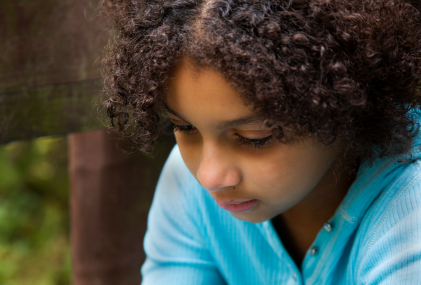Adversity May Increase Risk of Mood Disorders
In adults with bipolar disorder, adversity in childhood has been associated with an earlier onset of bipolar disorder compared to those who did not experience some form of adversity such as verbal abuse, physical abuse, sexual abuse, loss of a parent, abandonment, or neglect. At the 2013 meeting of the Society of Biological Psychiatry, Nancy Low et al. reported that the number of these stressful life events a child experienced was associated with the number of their anxiety symptoms, psychiatric disorders, and lifetime substance abuse. Having experienced 3 or more adversities was associated with a 3.5-fold increased risk for developing a mood disorder and a 3-fold increase in anxiety disorders and alcohol or drug abuse.
While the study has not yet been published in a peer-reviewed journal, the abstract (#194) may be found in the meeting supplement, Volume 73, Number 9S of the journal Biological Psychiatry.
Editor’s Note: Low’s study is the first to report that childhood adversity is a risk factor for the onset of bipolar disorder in the general population.
Given the increasing evidence for the persistence of epigenetic marks on DNA and histones (which can’t change the sequence of genes but can change their structure) in those who have experienced such stressors in childhood, this could provide a mechanism for the long-term vulnerability of these children to the development of mood disorders and a variety of physical illnesses.


